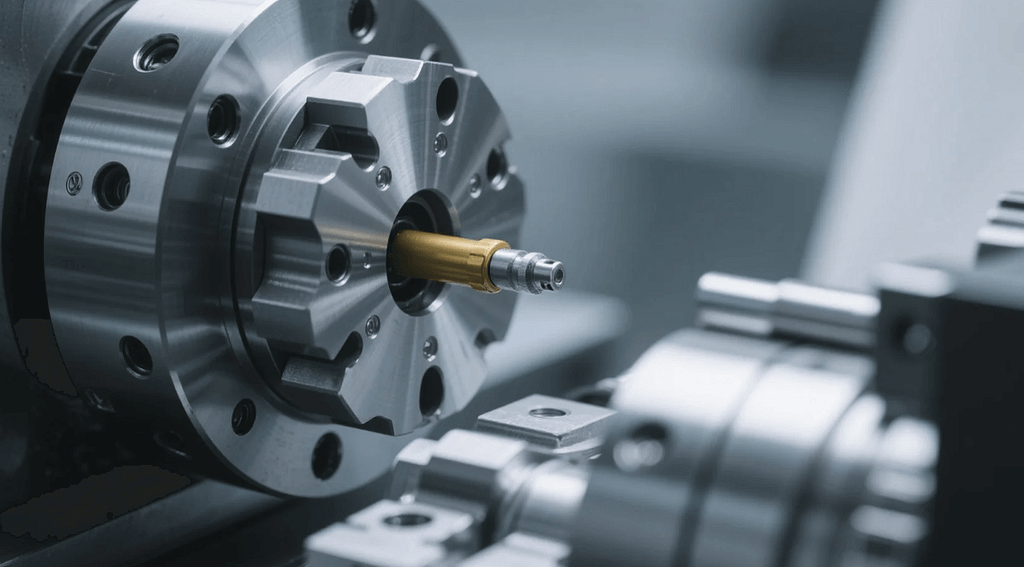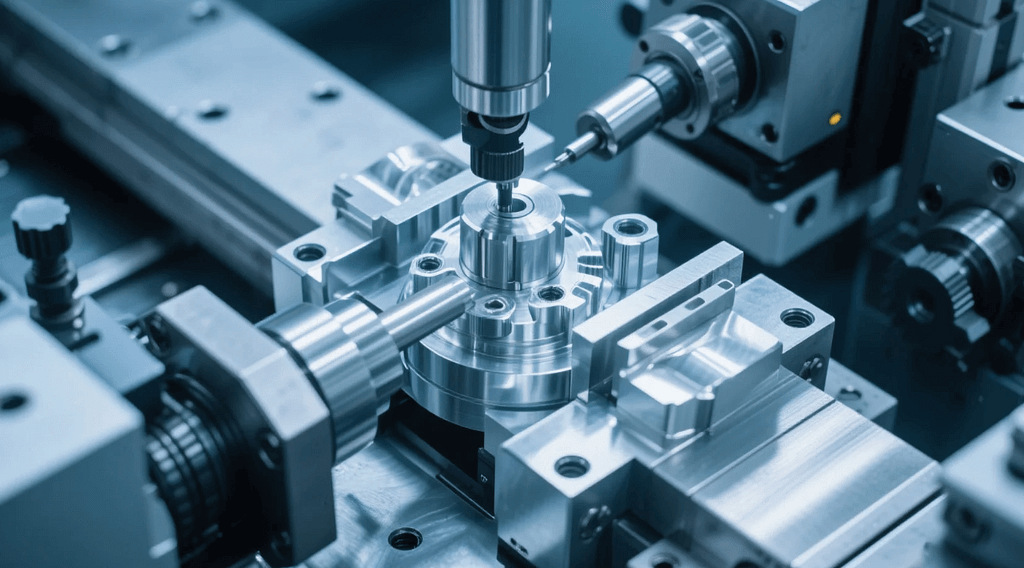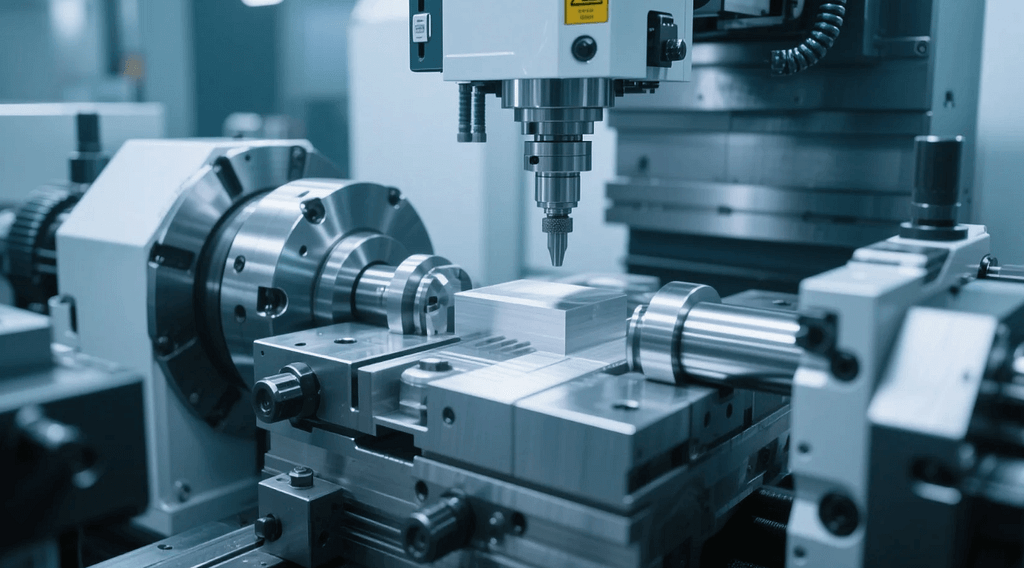In the dynamic world of manufacturing, the quest for perfection often leads to the embrace of advanced technologies. Among these, precision CNC machining stands out as a fundamental discipline, shaping the future of various industries, particularly in the creation of highly accurate industrial models. This article dives deep into the intricate world of precision CNC machining, exploring its definition, key characteristics, and its unparalleled importance for businesses seeking top-tier industrial model services. We’ll uncover how this technology delivers tangible value, ensuring that every project, from conceptual prototype to final product verification, meets the most stringent quality standards.
What is Precision CNC Machining?
At its core, precision CNC machining refers to the use of computer numerical control (CNC) machines to create parts and components with extremely tight tolerances and exceptional surface finishes. It goes beyond standard CNC machining by pushing the boundaries of accuracy, repeatability, and material integrity. Think of it as the surgical arm of manufacturing, capable of crafting intricate geometries and minuscule features that would be impossible with less advanced methods. This level of precision is critical in sectors where even microscopic deviations can compromise performance, safety, or functionality.

Key Characteristics Defining Precision
Several elements differentiate precision CNC machining from general machining processes. Understanding these characteristics is crucial for any client seeking high-quality industrial models.
Achieving Unmatched Tolerances
The hallmark of precision CNC machining is its ability to hold exceptionally tight tolerances, often measured in microns (one-thousandth of a millimeter). This level of accuracy is achieved through a combination of highly rigid machine structures, advanced control systems, and sophisticated tooling. For industrial models, this means that every curve, angle, and dimension in the digital design translates flawlessly into the physical model, ensuring true-to-design representation for form, fit, and function validation.
Superior Surface Finishes
Beyond dimensional accuracy, precision CNC machining also delivers remarkably smooth and consistent surface finishes. This is vital for industrial models where aesthetics, aerodynamic properties, or tactile feel are important. Achieving fine surface finishes often involves specialized cutting strategies, high spindle speeds, and optimal tool selection. A pristine surface finish not only enhances the visual appeal of a model but can also influence its performance in testing scenarios, such as airflow simulation or ergonomic evaluation.
Advanced Machine Technology
The machines employed in precision CNC machining are typically multi-axis systems (e.g., 5-axis CNC machines) equipped with high-resolution encoders, thermal compensation systems, and vibration dampening features. These technological advancements allow for complex geometries to be machined in a single setup, minimizing repositioning errors and maximizing accuracy. For industrial model fabrication, this translates into faster turnaround times and more accurate, monolithic models.
Expert Skill and Programming
While automated, precision CNC machining still heavily relies on the expertise of skilled machinists and programmers. Their ability to select the right tools, optimize cutting parameters, and craft complex G-code programs is paramount to achieving the desired precision. This human element ensures that the sophisticated capabilities of the machines are fully leveraged, transforming digital designs into physical masterpieces.
Precision CNC Machining in Industrial Model Applications

For providers of precision industrial model services, precision CNC machining is not just a tool; it is the cornerstone of their craft. It enables them to create models that are true representations of client designs, facilitating critical stages of product development.
Unveiling Design Intent: Form, Fit, and Function
One of the primary applications of precision CNC machining in industrial modeling is to create accurate representations for form, fit, and function validation. Before committing to expensive tooling for mass production, companies need to physically interact with a model to assess its aesthetics, ergonomics, and how its components fit together.
For instance, an aerospace company might require a precisely machined scale model of a new engine component to verify its aerodynamic properties in a wind tunnel. A medical device firm could need a highly accurate prototype of a surgical instrument to ensure it feels right in a surgeon’s hand and articulates as intended. In both scenarios, the absolute accuracy provided by precision CNC machining is indispensable. It eliminates guesswork, allowing designers and engineers to identify potential issues early in the design cycle, significantly reducing costly rework down the line.
Enhancing Visual Prototypes and Marketing Materials
Beyond functional validation, precision CNC machining is also instrumental in producing visually stunning prototypes for marketing, presentations, and investor pitches. The superior surface finishes and intricate detailing possible with this technology ensure that models not only convey the design’s functionality but also its aesthetic appeal. A highly detailed, precisely machined model can capture the essence of a product in a way that 3D renders simply cannot, creating a powerful impact on potential clients or stakeholders. This helps businesses showcase their innovations with confidence and clarity.
Functional Testing and Performance Validation
For many industrial models, the purpose extends beyond visual representation to rigorous functional testing. Precision CNC machining allows for the creation of models that can withstand physical stress, temperature variations, and operational forces, mimicking the conditions of the final product.
Consider a company developing a new consumer electronic device. They might require a precision-machined housing to test the thermal management system or the durability of internal components. The accuracy of the machined parts ensures that the test results are reliable and truly reflective of the final product’s performance. This level of validation is invaluable for ensuring product reliability and reducing post-launch failures.
The Advantage for Industrial Model Service Users
For clients seeking precision industrial model services, choosing a provider that leverages advanced precision CNC machining offers a distinct competitive advantage. It ensures that your prototypes are not just approximations, but highly accurate, functional representations of your designs. This accelerates your product development timeline, reduces risks, and ultimately leads to a higher quality final product. When you invest in a service utilizing precision CNC machining, you are investing in certainty and superior quality.
Overcoming Challenges in Precision CNC Machining
While highly advantageous, precision CNC machining also presents its own set of challenges. These often revolve around material selection, tooling, and environmental control.
Material Considerations
Working with various materials, especially exotic alloys or difficult-to-machine plastics, requires specialized knowledge and tooling. The choice of material directly impacts machining parameters, tool life, and ultimately, the achievable precision. Expert service providers understand these nuances and can advise on the best material for a given application, balancing performance requirements with machinability.
Tooling and Wear
Precision relies heavily on the sharpness and integrity of cutting tools. Tool wear can lead to dimensional inaccuracies and poor surface finishes. Advanced precision CNC machining operations often incorporate sophisticated tool monitoring systems and automated tool changers to maintain consistent quality throughout the production run.
Environmental Control
Temperature and humidity fluctuations can subtly affect machine accuracy, especially when holding micron-level tolerances. Many advanced precision CNC machining facilities are climate-controlled to minimize these environmental impacts, ensuring consistent results regardless of external conditions.
The Future of Precision CNC Machining and Industrial Models
The landscape of precision CNC machining is continuously evolving. Advances in machine intelligence, adaptive manufacturing, and real-time process monitoring are pushing the boundaries of what’s possible. We can anticipate even greater levels of automation, predictive maintenance, and the integration of artificial intelligence to optimize machining parameters for unparalleled accuracy. For industrial model services, this means even faster turnaround times, the ability to work with an even broader range of complex materials, and the creation of models with previously unattainable levels of detail and functionality. The commitment to ethical practices, prioritizing safety, quality, and environmental responsibility, will continue to guide these advancements.
Conclusion
Precision CNC machining is an indispensable technology that empowers industries to transform visionary designs into tangible, highly accurate industrial models. For businesses seeking to validate designs, enhance visual prototypes, or conduct rigorous functional testing, partnering with a service provider skilled in precision CNC machining is paramount. This advanced manufacturing technique not only ensures unparalleled accuracy and superior surface finishes but also significantly streamlines the product development process, leading to higher quality products and reduced time to market. As technology continues to advance, the capabilities of precision CNC machining will only grow, further solidifying its role as a cornerstone of modern manufacturing and product innovation.
FAQ
Q1: What makes precision CNC machining different from regular CNC machining?
A1: Precision CNC machining focuses on achieving extremely tight tolerances (often in microns) and superior surface finishes, using advanced multi-axis machines, specialized tooling, and expert programming. Regular CNC machining may have broader tolerance allowances.
Q2: Why is precision so important for industrial models?
A2: Precision is crucial for industrial models because they are used for validating design intent (form, fit, and function), ergonomic assessments, and rigorous functional testing. Any deviation can lead to inaccurate test results or misleading design feedback, causing costly delays or product failures.
Q3: What types of materials can be used in precision CNC machining for industrial models?
A3: A wide array of materials can be used, including various metals (aluminum, steel, titanium, brass), engineering plastics (ABS, polycarbonate, PEEK, Ultem), and even some composites. The choice depends on the model’s intended use and required properties.
Q4: How does precision CNC machining help reduce product development costs?
A4: By creating highly accurate prototypes early in the development cycle, precision CNC machining helps identify and rectify design flaws before costly tooling for mass production begins. This reduces rework, minimizes material waste, and accelerates time to market.
Q5: Can precision CNC machining create complex geometries for models?
A5: Yes, absolutely. Advanced multi-axis CNC machines are specifically designed to create intricate and complex geometries, undercut features, and fine details that would be impossible with less sophisticated manufacturing methods. This is a key advantage for modern product designs.
Q6: What should I look for in a service provider for precision industrial models?
A6: Look for providers with a strong track record in precision CNC machining, advanced machine capabilities (e.g., 5-axis), expertise in various materials, quality control processes, and a deep understanding of your specific industry’s requirements. Communication and customer support are also vital.
